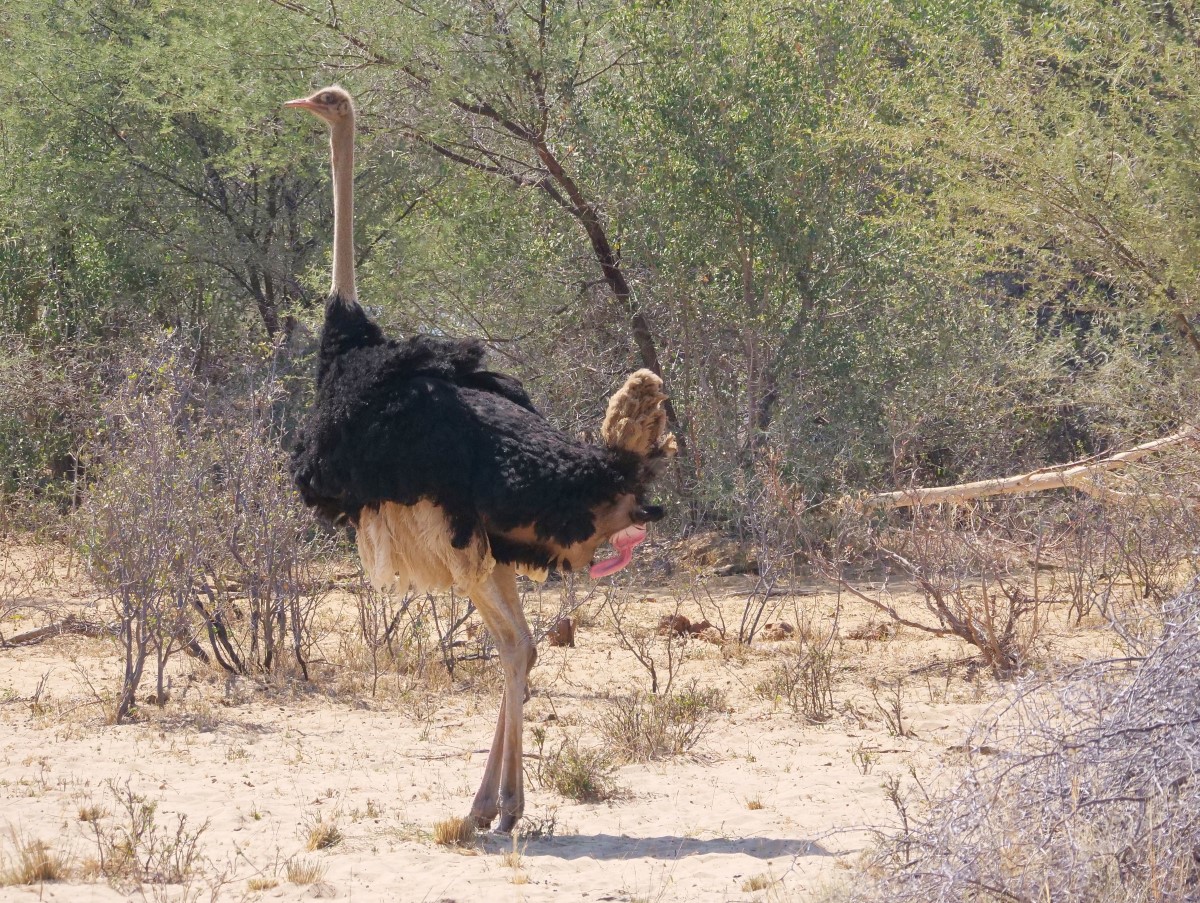The 3% Minority
We're sure you knew that in most cases, birds reproduce by what's called a 'cloacal kiss'. They touch each other's cloacae together to allow sperm to be transferred.
Oh! You didn't know birds had no penis?
Well... some of them do! The biggest species of bird, for instance, does have one, and the way it functions is very different from the way most penises work.
The ostrich (Struthio camelus) is one of only 3% of bird species that have a penis. Like other birds with penises, the ostrich doesn't pump blood into the organ to achieve an erection as reptiles and mammals do. Instead, these birds, as well as other ratites and waterfowl, have a penis that gets filled up with lymphatic fluid.
It made scientists wonder: how come they evolved a new way of reproducing when there was already one that worked pretty well?
The origin of a lymphatic penis is yet unknown, but we know how it works. In ostriches and emus, the lymphatic fluid stiffens the organ and pushes semen toward the tip. And the process is truly quick.
To get closer to finding out what happened in the course of evolution, you must look at the birds' closest relatives: non-avian reptiles. Their penis works on a different basis, but anatomically it's pretty similar.
Since these 3% of birds all have lymphatic penises, it means the common ancestor of all birds must have had it as well, as a research conducted in Queen’s University in Kingston, Canada, shows. The study is pretty fresh and it's interesting that no one cared about bird penises before. Look at mammals, reptiles, or even invertebrates - the penis is an incredibly important part of sexual reproduction, and it seems that penis evolved in amniotes only once. We'll learn about a lot of strange ones this week. How is it possible, then, that 97% of birds figured: "Nah, we don't need that stuff"?

Photo credit: Elke Brüser
Flügelschlag und Leisetreter
| Common name: | Common ostrich |
| Scientific name: | Struthio camelus |
| Phylum: | Chordata |
| Class: | Aves |
| Order: | Struthioniformes |
| Family: | Struthionidae |
| IUCN status: | Least Concern |
| Population trend: | Decreasing |
| Scientific reading: |